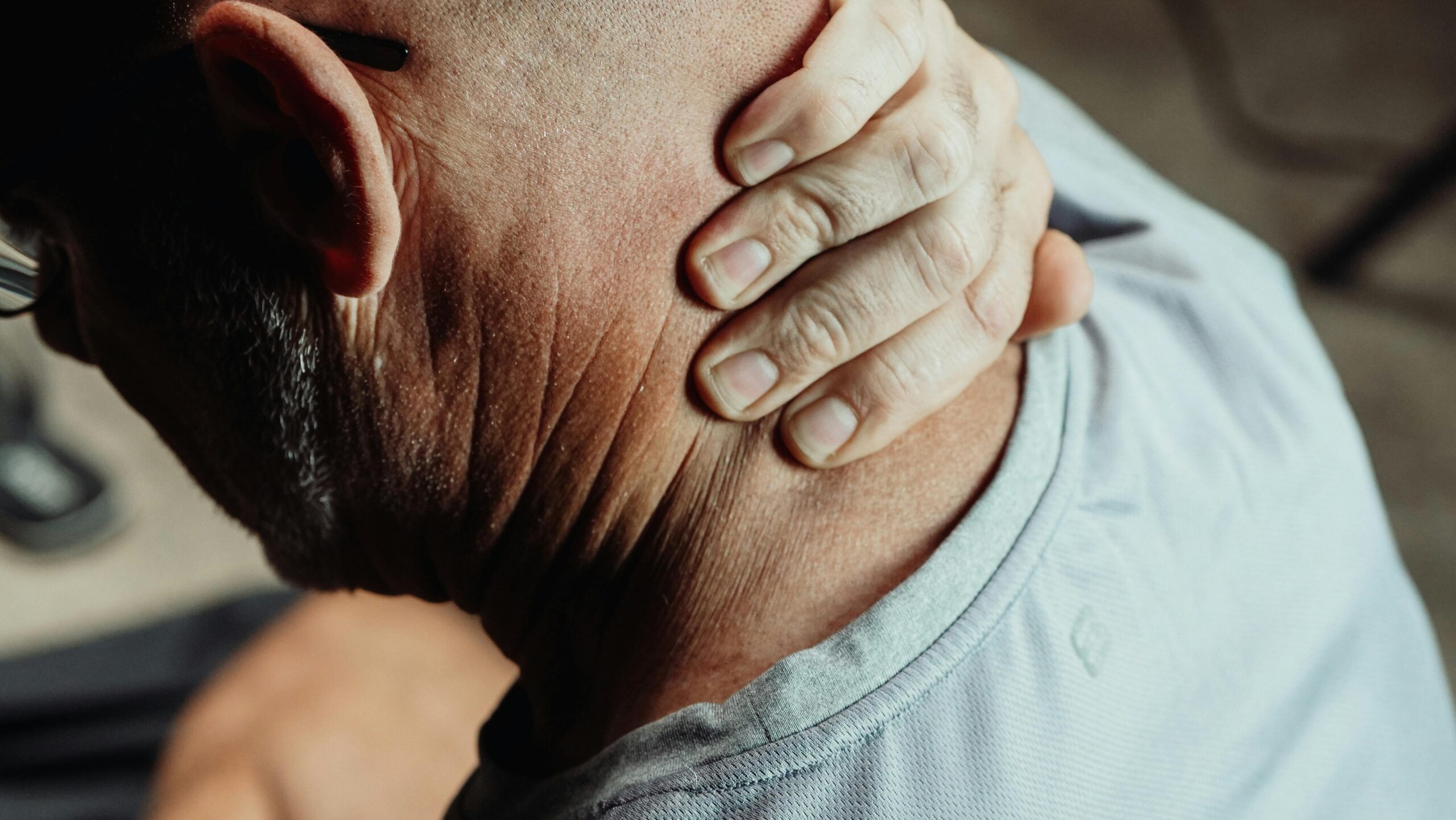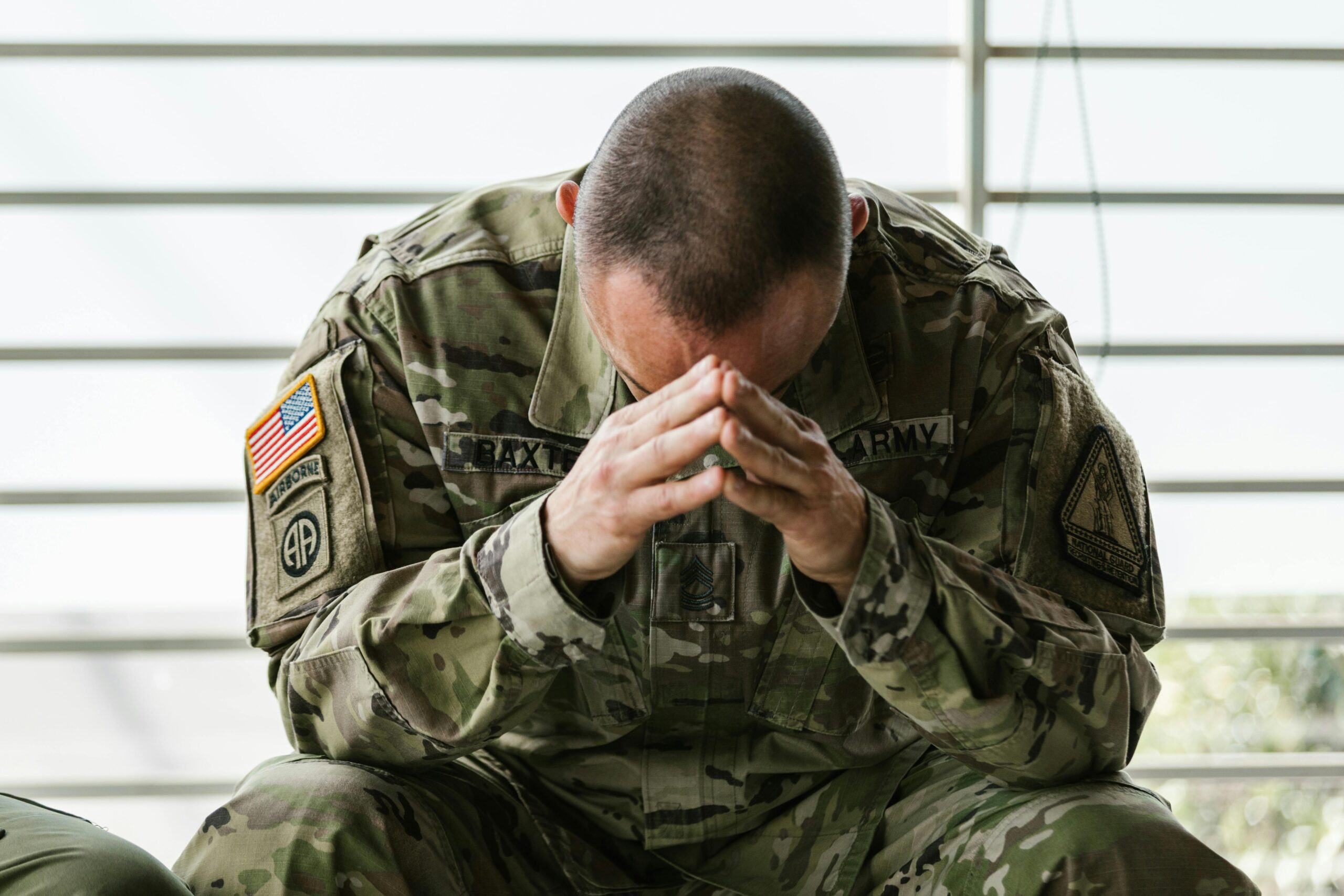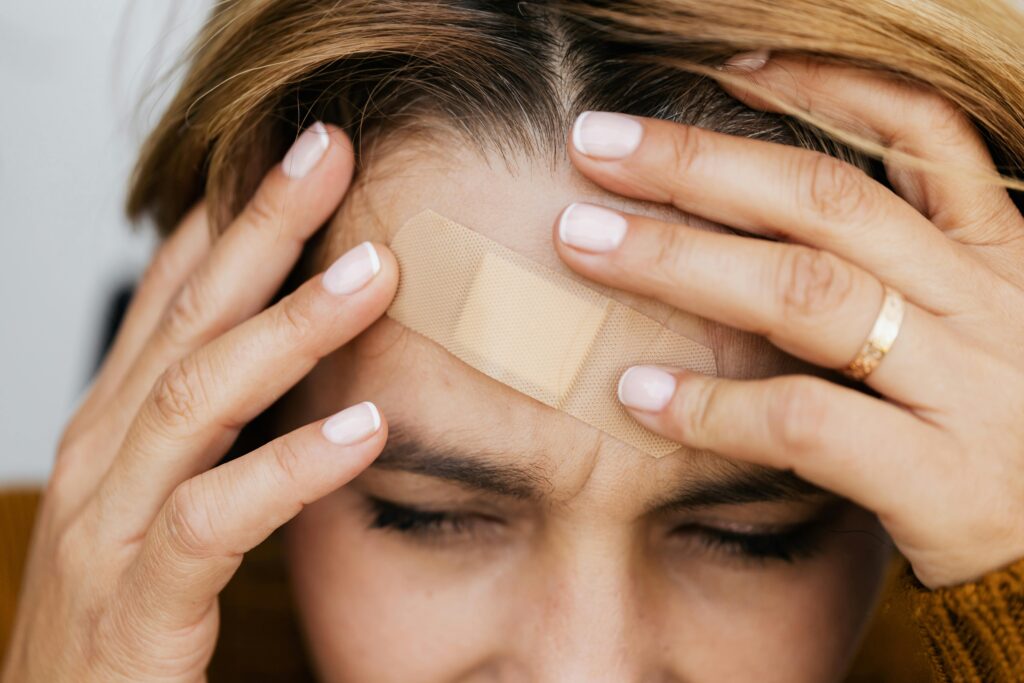What Is PTSD?
PTSD stands for Post-Traumatic Stress Disorder. It happens when someone goes through a very scary or harmful event. This could be from combat, a car crash, domestic violence, childhood trauma, or an assault. Some people, like veterans, first responders, or people who lived through violence, are at higher risk.
But PTSD doesn’t just affect your mind—it affects your body too. Let’s look at how.

How PTSD Changes the Brain
Stress Hormones and the Nervous System
When someone has PTSD, their brain keeps thinking they are in danger. This makes the body release too many stress hormones like cortisol and adrenaline. These chemicals make the heart rate, blood pressure, and breathing go up. This is called arousal or the startle response.
Too much stress can harm the sympathetic nervous system, nervous system, and immune system. That can lead to health problems like inflammation, allergies, and fatigue.
Parts of the Brain Affected
The amygdala becomes very active, making people feel fear, anger, or panic.
The hippocampus, which helps with memory, gets smaller. This can cause amnesia, confusion, and dissociation.
The prefrontal cortex, which helps with thinking and attention, doesn’t work well. This affects cognition, behavior, and mood.
Physical Problems from PTSD
Sleep and Nightmares
People with PTSD often have insomnia and nightmares. The brain keeps replaying scary events, also known as flashbacks. This ruins sleep, causing fatigue, irritation, and mental distress.
Pain and Muscle Tension
PTSD causes muscle pain, back pain, and headaches. The body stays tense all the time. Pain can also come from psychological stress, not just injury. This is called psychosomatic pain.
Stomach and Digestive Problems
Stress harms the gastrointestinal tract, which includes the stomach and intestines. People may feel nausea, stomachaches, or have weight changes. Some research shows PTSD may lead to metabolism problems or even autoimmune disease.
Heart and Blood Pressure
PTSD can raise your blood pressure and damage blood vessels. This may cause hypertension, heart disease, and other organ problems. If the heart rate stays high for too long, it can wear out the heart.
Breathing and Dizziness
People with PTSD may feel shortness of breath, dizziness, or even pass out. This happens during panic or when the nervous system is overwhelmed.

Behavior and Emotions
Mood and Mental Health
PTSD can lead to depression, guilt, shame, and even prolonged grief disorder. Some may also have bipolar disorder, seasonal affective disorder, or phobia. PTSD can change your emotion, mood, and how you feel every day.
Anger and Aggression
Some people feel anger or show aggression. They may act mean without meaning to. This is part of combat stress reaction or an acute stress reaction.
Isolation and Social Problems
PTSD may make it hard to talk with family, friends, or a parent. People may avoid crowds or be very hypervigilant. This hurts quality of life and can lower social support.
Addiction and Risky Behavior
To cope with PTSD, people may use alcohol, medicine, or drugs. This can lead to addiction and more health problems. This behavior may also be seen in workers or patients who deal with trauma often.
PTSD and the Body Over Time
PTSD doesn’t just go away on its own. Without help, it can lead to other disorders like:
Dementia in older age
Schizophrenia in rare cases
Problems with neurology, physiology, and even immune system damage
Over time, chronic stress may change how your genes and neurotransmitters like serotonin and norepinephrine work. This causes more pain, fatigue, and distress.
Getting Help for PTSD
Diagnosis and Health Care
A health professional like a physician, nurse, or therapist can help. They use tools from psychosomatic medicine, behavioral medicine, and internal medicine to check your symptoms and diagnosis.
If you’re a veteran, first responder, or someone who experienced intimate partner violence, childhood trauma, or extreme weather, you are at greater risk. Ask your primary care doctor for help.
Medicine and Therapy
Some medicines help balance brain chemicals:
Antidepressants like fluoxetine, paroxetine
Benzodiazepines (used for anxiety but must be taken carefully)
Prazosin (can help with nightmares)
Norepinephrine reuptake inhibitors
Anxiolytics to calm anxiety
Therapy types include:
Cognitive behavioral therapy (CBT)
Desensitization techniques
Exposure therapy
Support from the American Psychological Association
Ways to Cope and Recover
Healthy Coping Strategies
Exercise helps release serotonin and improve mood
Sleep well by sticking to a routine
Avoid alcohol and drugs
Practice deep breathing and mindfulness
Join a support group or talk to a health care provider
Support from Policy and Insurance
Many insurance plans now cover PTSD treatment. Government policy is also helping more patients get care.
Research and Evidence
A systematic review of many studies shows that people with PTSD improve with the right management. New evidence shows PTSD affects brain shape, blood pressure, and cognition. Epidemiology shows that prevalence is higher in people who experienced trauma or had adverse childhood experiences.

FAQs About Physical Effects of PTSD
What are the most common physical signs of PTSD?
Common signs include headache, muscle pain, insomnia, fatigue, nausea, and high blood pressure. These happen because the body stays in “danger mode.”
Can PTSD cause long-term health problems?
Yes, PTSD can lead to heart disease, hypertension, addiction, and even dementia. It also harms the immune system and gastrointestinal tract.
How does PTSD affect sleep?
PTSD causes insomnia, nightmares, and flashbacks. These make it hard to fall asleep or stay asleep, leading to mental distress and fatigue.
What happens to the brain with PTSD?
The amygdala becomes too active (causing fear), the hippocampus shrinks (hurting memory), and the prefrontal cortex works less (affecting decision-making).
Can children have physical effects from PTSD?
Yes. Children with PTSD may feel stomachaches, headaches, or show changes in behavior. They may cry more or avoid people, especially after childhood trauma.
Final Thoughts
PTSD is more than just a mental health issue—it also causes physical health problems. It affects your sleep, heart, stomach, muscles, and even your brain. Getting support from a health professional, learning coping skills, and using safe medicine can help you feel better. Remember, recovery is possible, and you are not alone.
If you or someone you love is showing signs of PTSD, reach out to a doctor or therapist today. Early help means a better chance at full recovery and a healthy life.
Visit SAMHSA or contact us today for more information.





